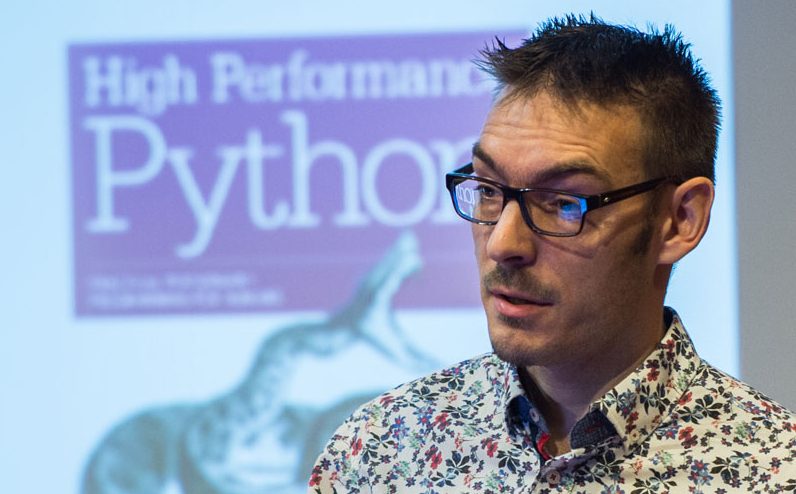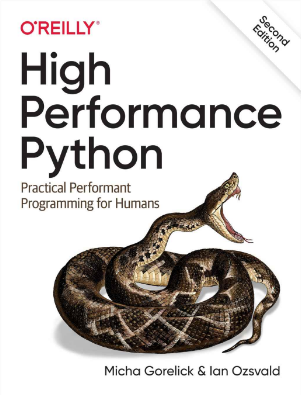Entrepreneurial Geekiness

London Python Meetups – active again
I’m pleased to see that the London Python meetups are running again. I’m also annoyed that I didn’t realise that one was running last night, but ho hum!
There’s a write-up by Fuzzyman (Mr. voidspace) and Tim Golden and it sounds like the free beer, pizza and great talks went down a storm.
Next time I hear about an event I’ll ask around and see who fancies a group venture to London.
Next £5 App Meet – Building Communities by Jeremy Keith (ClearLeft)
ClearLeft’s Jeremy Keith will be talking on how he built a large web community at next Tuesday’s £5 App. Sign-up on Upcoming please so I know numbers, or Unattend if you can’t make it (so I buy the right amount of beer).
The Session (http://www.thesession.org/) is a community website
dedicated to Irish traditional music that’s been running for about 8
years now. You’ll get a peek behind the curtain at the technology
running the site but the really interesting aspect is seeing how the
community has grown over the years and how that affects the structure
of the site.
Last month’s event was by Martin talking on his experiences as a Mac Indie Shareware Developer and Martin is likely to be involved with our resident artist ShardCore (now exhibiting at the Tin Drum Kemptown) for our Christmas Special – tentatively titled ‘The $50 Million Apps’.
Write-ups of all the previous meets are linked on my blog and via the official £5 App Site alongside the official (and low frequency) £5 App Blog.
Note also that we have a £5 App Day coming during November (replacing the £5 App Meet just for November) where we want to help a whole heap of companies take a step forwards. Expect sessions, panels and talks. Tentative details at Upcoming, Sunday Nov 10th.
“Set your own price” for goods?
[Update – added Kottke.org micropatron report near the end]
RadioHead have taken a bold move with their latest album “In Rainbows” as they allow fans to set their own pricing for the digital download (summary, long write-up with pictures of the process).
Except for a fixed credit-card overhead (around 45p) it seems that you can set any price you want (0p? Apparently 0p can work). Obviously this is a damned disruptive move for a large music group in the established industry, and about time too.
This is covered at Slashdot and BoingBoing and with an economics twist on The Long Tail and at the always-insightful BubbleGeneration:
“In quite a bit of recent work, we’ve been pointing out to clients that it’s a trend that is on the cusp of explosion…because it’s gonna absolutely revolutionize the economics of music.
…
Suffice it to say that open pricing is a strategic solution which deeply, deeply dominates the economics of music.”
I’ve toyed with the idea of using adaptive and user-defined pricing for our two commercial Python tutorials at ShowMeDo. So far we’ve settled for a fixed $10 purchase price – but maybe we should revisit a more flexible pricing model?
I particularly like the idea of letting a user choose their own price, having first established a ‘recommended’ price, and later giving the user the option of donating more if they really liked the content.
This lets people pay less than they might if they’re unsure and then come back and top-up the price if they found the information valuable. This would of course be backed by a money-back guarantee, that goes without saying.
A similar thread was discussed over on the 37signals blog for ‘Jane Siberry’s “you decide what feels right” pricing‘:
“The Canadian folk-pop singer Jane Siberry has a clever system: she has a ‘pay what you can’ policy with her downloadable songs, so fans can download them free – but her site also shows the average price her customers have paid for each track. This subtly creates a community standard, a generalized awareness of how much people think each track is really worth. The result? The average price is as much as $1.30 a track, more than her fans would pay at iTunes.”
Jane’s site includes a page describing her approach and it contains statistics on the prices currently being paid by purchasers.
This comment on the RadioHead thread at Slashdot covers several related examples of set-your-own-price music sales.
Matt Weston sent me a pointer to Jason Kottke’s kottke.org – during 2005 he ran a fund drive asking his readers (as ‘micropatrons’) to support his salary so he could work on the blog full-time. As far as I’m concerned his blog is a ‘digital good’ for the sakes of this entry.
He reports on day 2 and got some media coverage and raised just enough money to pay 1/2 his normal salary for a year.
After 2 months he gave an informative report on the results of the funding drive:
“And finally, the answer to the $64,000 question: is this a sustainable business model for independent media on the Web? The short answer is probably no, with a few caveats.”
Along with a concluding report after a year:
“[2] Since everyone and their uncle has been asking, about 1450 micropatrons contributed $39,900 over the past year…99.9% of that coming during the 3 week fund drive.”
Jason’s case is the only micropatron experiment that I know of (thanks for the reminder Matt) – anyone know of others?
A feedback mechanism is important, in ShowMeDo we could easily show what a user paid (and donated) and a user’s profile would presumably state if they were a penniless student or the MD of a tech company. Giving people a chance to be honest, pay what they want, and be a responsible member of a community feels like a very sensible thing to consider.
Are there more examples of setting your own price for a digital good that I’ve not covered here?
Artificial Intelligence problems in Industry (things I’ve worked on)
A few days back Mihai commented an interest in the Artificial Intelligence work that I’ve undertaken in the past. I figure that a short run-down of the kinds of problems I’ve tackled might be interesting.
Since 2004 I have run my own A.I. research consultancy – I’m blogging about the experience of becoming a freelance programmer and researcher at the moment (part 2, part 3, several more to come).
Currently I’m working with PANalytical in the UK R&D lab (under Professor. Paul Fewster) to apply evolutionary search algorithms and statistical analysis to multi-dimensional search problems along with an old colleague from MASA (John Anderson).
We’re looking at improving their highly-regarded Epitaxy and Reflectivity X-Ray analysis tools so that they can solve more complex problems more quickly and reliably.
Techniques include evolutionary algorithms, pattern matching, statistical signal processing and a lot of lateral thinking. I won’t say any more as the details are confidential and my work is on-going.
I enjoyed some ad-hoc work at Ambiental previously on their flood-modelling software. The interesting side of things is thinking about what you can when you can accurately model floods – can you predict the best place for flood defences? Can you apply the same techniques to crowds or gas dispersal (e.g. bombs)?
During 2003 and 2004 I worked at Algorithmix on Natural Language Processing problems under Nick Jakobi (now at Google). Up until Corpora acquired Algorithmix I worked on cutting-edge approaches to sentiment analysis and for new-news ‘burst’ reporting.
During that time I also did my own work looking at the use of Bayesian Algorithms (which were becoming rather hot for personal spam filtering) for network-based spam filtering. I worked on the assumption that ISPs saw lots of the same spam so training a filter would be much more efficient at the ISP than on the end-user’s machine.
Algorithmix was spun out of the French MASA Group where I was Senior Programmer for 5 years. I worked on the logistics optimisation side of the business (competing with iLog) into what is now the Blue Kaizen division.
The general work was to use evolutionary search algorithms on heavily-constrained logistics problems to e.g.
- Route postmen efficiently in vans to collect mail
- Route petrol tankers to deliver fuel to many cities on complex road networks with varying traffic levels
- Route waste-collection trucks which handle different types of waste to the appropriate management facility whilst respecting French hours-worked rules and road systems.
These problems were reasonably representative of the hardest logistics problems that high-end desktop computers could solve at the time, given the constraints of the problems.
I’ve always had an interest in electronic circuit design and in my early days at MASA I did some of my own research into floor planning, routing and device placement. Each of these are hard problems which will only get harder as e.g. our CPUs become more complex.
Another area of research at MASA was in the world of financial trading. I was involved in a long project on straight-forward stock market prediction (and no, it wasn’t successful and don’t get me started).
Later, separate from MASA, I was involved in a short piece of work looking at baskets of tradable financial instruments for statistical arbitrage which was fun.
Is AI alive and well? Yes, of course it is. It isn’t necessarily GOFAI and robots don’t clean our houses but there’s a heck of a lot that AI offers us.
One of the big reasons that I like AI is that it can be used to relieve humans of a lot of the tedium of analysing large amounts of data:
- Spam classifiers will have to get more-AI-ish to deal with the visual and language elements that spammers keep bringing to the party
- Logistics optimisation will get more complex as we have more constraints, more things to do and less time for planning
- Circuit designs continue to follow Moore’s law and get more complex at a frightening rate.
- As physics analysis machines become more complex the wealth of data becomes un-navigable unless you have the appropriate analysis tools.
What to get involved? If you don’t have a background in the area then find a subject that interests you, do some reading and choose a flexible dynamic language so that you can iterate quickly (I favour Python for all my AI work with number crunching in C++).
[I shall quickly plug our ShowMeDo’s Python tutorial videos, there is nothing directly for A.I. in the list but there are videos for programming, physics, graphics and useful utilities that are associated with the domain.]
Search Amazon for terms like ‘artificial intelligence’, ‘evolutionary algorithms’ and ‘natural language processing’. I like ‘New ideas in Optimisation‘ by Corne, Dorigo and Glover (click the link and click the author’s names to see the AI books they published themselves).
You’ll find plenty of resources on the web and feel free to leave a comment if you’d like a bit of guidance on how to get started.
Becoming a Freelance Programmer (Part 3)
Most people are helpful and supportive of freelancers. They know that freelancers survive by being good, trustworthy and helpful and so they try to help. Do remember to tell people that you are freelancing, what you do and what you’re looking for.
Don’t bore them, just let them know what you need and they’re bound to bear you in mind when they meet other people. Always let people know if you’re about to be available, you don’t want unplanned downtime.
Articles: Introduction, Successful Freelancing, Talking to People, Making a Sales Call, Books and Resources.
Meeting People at Events
There are plenty of events you can go to as a freelancer to meet potential clients and freelancers. Here in Brighton we have a great set of local geek events [Sussex Digital – thanks Dave & Josh!].
OpenCoffees are a great and relaxed way to meet local small companies (I’m co-founder of OpenCoffee Sussex).
Look out for Geek Dinners and Girl Geek Dinners (boys need a girl to invite them). Here we have the Sussex Geek Dinners and Brighton Girl Geek Dinners. Each are free to attend and great places to network. We also have Vine Brighton, your area is bound to have similar events.
Brighton hosts the £5 Apps meet (I’m a co-founder) – a meetup for those that are interested in start-ups and can-do techy types. Someone presents and idea or company they founded, everyone asks questions, beer is consumed, people network. See past write-ups of our last six £5 Apps meetings.
Make Yourself Known by Organising Events
A great way to get known in a local scene is to organise events. You can offer to help run existing events but if there’s something missing and you want to see it happen – organise it!
I wanted a venue to discuss entrepreneurship, my friend John wanted a geek event to discuss projects, we created the £5 Apps as a result. After 6 months we now have a successful event, beer is funded by local companies and we have 20-30 attendees every month. We’d love to hear about other £5 App events elsewhere in the country – drop us a line if you want to run one!
Similarly, with another Jon (Inuda) we wanted a relaxed coffee morning for local tech companies so we organised OpenCoffee Sussex at the Sussex Innovation Centre. We’ve had 7 great meetings now, bi-weekly, they’re also now funded allowing free coffee, each is attended by 12-20 local companies.
Organising events takes a few hours a month and is a great way to get yourself known. In part I wanted the £5 Apps as I’m a bit overwhelmed by public speaking – running an event is a good way to get essential practice at speaking in public.
I also felt that Brighton lacked a mailing list for tech companies to talk business. Along with Ivan Pope we organised the Brighton Digital mail-list. The list is small and building a list always takes time, it grows every week and over time it will become a useful local resource. We’ve already had some conversations between local companies discussing local resources and swapping ideas.
What’s the value of these events?
As ever – you have to offer value to other people when you organise things. Your own events and mail-lists aren’t a mouthpiece for shouting about your own company, they’re just a useful way of establishing your credibility whilst providing a useful feature to others.
Figure out what is missing in your local scene and build an event around that. Find a partner who wants to share the workload, make sure there is interest and then just do it. It’ll take a few events to gather steam, don’t be put off – most people will only pay attention when something is ‘more established’.
If you’re building a new geek event then feel very welcome to post a comment here. We’d especially like to see the £5 Apps syndicated elsewhere 🙂
Read my book

Oreilly High Performance Python by Micha Gorelick & Ian Ozsvald AI Consulting
Co-organiser
Trending Now
1Leadership discussion session at PyDataLondon 2024Data science, pydata, RebelAI2What I’ve been up to since 2022pydata, Python3Upcoming discussion calls for Team Structure and Buidling a Backlog for data science leadsData science, pydata, Python4My first commit to PandasPython5Skinny Pandas Riding on a Rocket at PyDataGlobal 2020Data science, pydata, PythonTags
Aim Api Artificial Intelligence Blog Brighton Conferences Cookbook Demo Ebook Email Emily Face Detection Few Days Google High Performance Iphone Kyran Laptop Linux London Lt Map Natural Language Processing Nbsp Nltk Numpy Optical Character Recognition Pycon Python Python Mailing Python Tutorial Robots Running Santiago Seb Skiff Slides Startups Tweet Tweets Twitter Ubuntu Ups Vimeo Wikipedia

